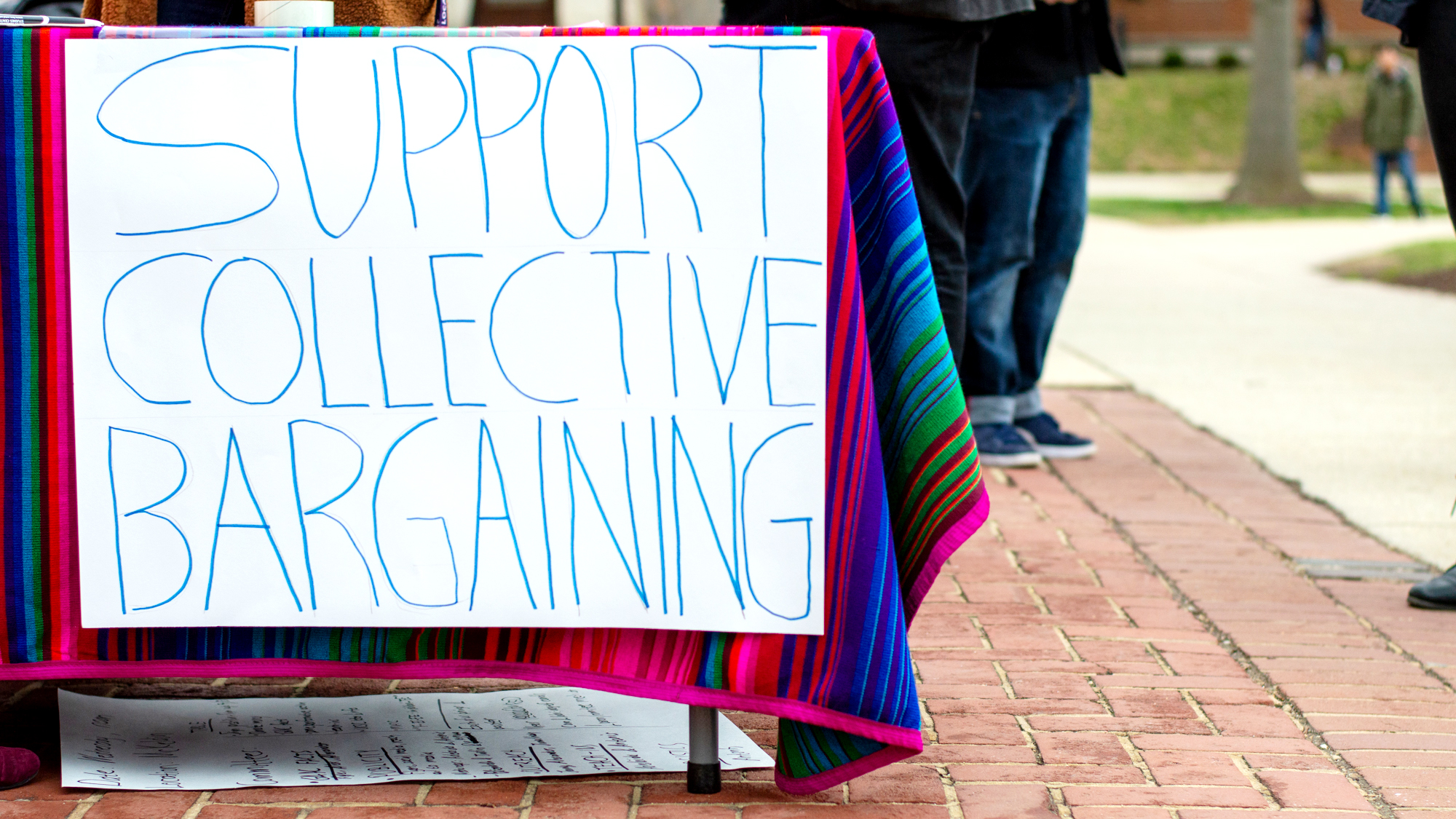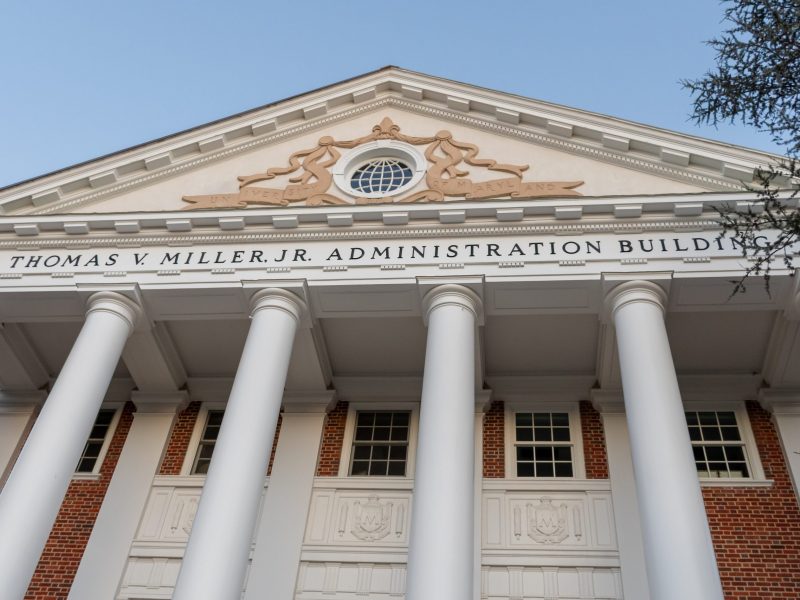Views expressed in opinion columns are the author’s own.
Near the midpoint of a tense semester, I joined other graduate students to meet with University of Maryland administrators. That meeting turned tear-filled, with graduate workers trying to convince administrators of what workers need to thrive.
One graduate worker asked how they were supposed to support their partner when they don’t make what they need to survive.
The room’s safety shattered under a buzzing projector. The silence broke only as administrators departed. I didn’t take this lightly — I took it as a call to action.
On Nov. 6, as the University Senate prepared for a discussion about our campus climate, I read an edited resolution from the senate’s student affairs committee. If passed, the senate resolution would signal support of democratic efforts for graduate workers to collectively bargain with the university.
I’ve spoken about these problems before. Graduate students take on multiple jobs to pay medical bills while expected to thrive in their field and still make rent. The devastating effects our current political climate could have for minorities prompted me to write on this issue months ago.
Even so, I fear the opposition’s arguments have stayed the same.
Administrators have testified to the Maryland General Assembly multiple times saying unions harm student-mentor relationships and make graduate work more about employment than mentorship.
It’s an argument that strikes me as either unjustified or downright fearmongering. Is collective bargaining really going to damage healthy student-mentor relationships?
Years in journalism have only provided me with union experiences that, at absolute worst, slightly improve my well-being and supervisor-employee relationships. Moreover, I’m sure administrators of our R1 university — the highest rank for research schools — have read studies and stories since 2000 that find no evidence of damage brought about by unions.
I’ve never been able to understand these claims.
What I have been able to understand, however, is just how many graduate workers want this: a supermajority, as of October.
I’ve found pressure in my heart when speaking to potential graduate students, because I cannot ethically justify bringing more people into economic hardship. It would be unconscionable.
And I’ve been most deeply hurt when I hear people say Maryland law doesn’t allow graduate workers to bargain collectively. It hurts because it’s both true and preventable.
Administrators at this university argue annually against laws to allow graduate labor unions. They don’t just respect laws blocking a union. They actively advocate for those policies to remain in place.
Graduate workers such as myself travel to Annapolis with plenty of proof a union is taking hold on our campus. With the help of legislators in the Maryland General Assembly and plenty of planning, members of this budding union fight for the right to collectively bargain every year.
And every year, without fail, administrators make this same costly trip to speak on behalf of the university against collective bargaining bills.
But let’s be real. The university’s interest seems a far cry from the community they serve.
The Graduate Labor Union boasts union cards signed by more than half of graduate workers, who organize alongside alumni, staff and faculty across Maryland. When the Graduate Labor Union publicly asked university administrators to forgo speaking against state legislation, the call went unheeded.
What’s worse is that we pay the administrators who lobby against collective bargaining at the statehouse. We paid for administrators who represent our best interest.
That’s why I’m bringing forth this collective bargaining resolution in the senate — to clarify what the community really thinks is in its best interest.
To be clear, my resolution won’t force recognition of the Graduate Labor Union. But it will embody the university community’s position. It will reveal the real distance between the university’s position on collective bargaining and the democratic will of the people.
It is for this reason, with empathy, patience and reverence for democracy, that the senate must pass this resolution.
Ivy Lyons is a Ph.D. Student at the Philip Merrill College of Journalism. They can be reached at ilyons@umd.edu.



